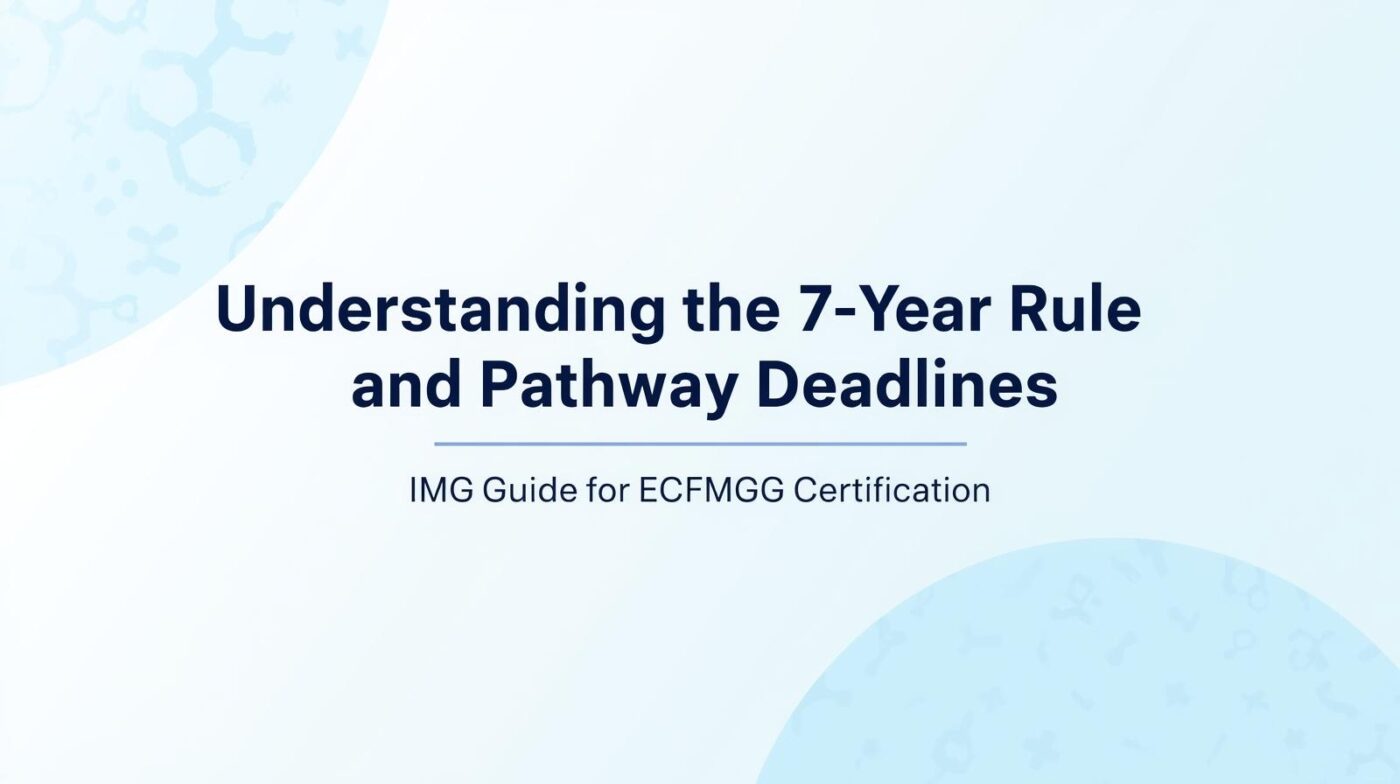Registration & Pathways
ECFMG Certification Deadlines Explained | The 7-Year Rule vs. Pathway Expiration
To work as a physician in the United States, international medical graduates (IMGs) must obtain ECFMG certification. Achieving and maintaining this certification involves two often-overlooked deadlines.
The first is the “7-Year Rule,” and the second is the “Pathway Expiration Date.” Missing either deadline means you will need to retake or reapply.
This article explains the difference between these two deadlines and offers strategies to help you manage them effectively.
※This article is written by OET Bank, where we specialize in helping healthcare professionals prepare for OET and support their overseas career opportunities.
What Is ECFMG Certification?
ECFMG certification is a credential required for IMGs who wish to enter residency or fellowship training in the U.S.
With this certification, you can apply to ACGME-accredited programs and also qualify for a J-1 visa.
To obtain it, you must pass USMLE Step 1 and Step 2 CK, in addition to fulfilling requirements under the Pathway program, which evaluates clinical and English communication skills.
Previously, the USMLE Step 2 CS (clinical skills exam) was part of the process, but it was discontinued in 2021 and replaced entirely by the Pathways system.
The “7-Year Rule”
The ECFMG 7-Year Rule sets an expiration period for USMLE exam scores.
Once you pass your first exam (usually Step 1), you must complete Step 2 CK and a Pathway within seven years. Otherwise, your certification becomes invalid.
For example, if seven years have passed since your Step 1 pass and you have not completed Step 2 CK or the Pathway, your Step 1 score will no longer count toward certification.
Importantly, ECFMG does not send reminders about this deadline. The responsibility for managing the schedule rests entirely with you.
If your earlier scores expire under this rule, you must retake the exam. Normally, USMLE exams cannot be repeated once passed, but the 7-Year Rule provides an exception: you can reapply to retake a previously passed exam by submitting a written request to ECFMG.
For instance, if you only passed Step 1 but did not complete the other requirements within seven years, you must retake Step 1. This re-exam can be a heavy burden, requiring renewed study and adaptation to any changes in test content.
Pathway Expiration Dates
In addition to the 7-Year Rule, ECFMG certification is also subject to Pathway expiration dates.
For example, Pathways approved during the 2021–2022 cycle will expire on December 31, 2024. Even if your USMLE scores remain valid, your certification will lapse after this date unless you revalidate your Pathway.
Revalidation often requires retaking OET or submitting additional clinical skills assessments such as a mini-CEX. Since application windows are fixed, IMGs aiming for the upcoming Match must carefully plan ahead.
The expiration schedule is set by intake season:
- 2023 Pathways → valid until December 31, 2025
- 2024 Pathways → valid until December 31, 2026
- 2025 Pathways → valid until December 31, 2027
- 2026 Pathways → valid until December 31, 2028
Another key point: once you complete 12 months of ACGME-accredited clinical training in the U.S., your ECFMG certification automatically becomes permanent. This means that although your initial certification may be time-limited, your subsequent U.S. training upgrades it to lifetime validity.
(Source: ECFMG / medicalboard.gov.au)
Summary
To recap, here are the main takeaways:
7-Year Rule:
You must complete Step 1, Step 2 CK, and Pathway requirements within 7 years of your first USMLE pass. If not, earlier scores become invalid, and retesting is required.
Pathway Expiration:
Each Pathway cycle has its own expiration date. Once expired, you need to reapply and may need to retake OET or other clinical assessments.
Permanent Certification:
Completing 12 months of ACGME-accredited clinical training in the U.S. upgrades your certification to lifetime validity.
Study with OET BANK
Stop wasting time comparing OET materials.
With OET BANK, you get:
- Premium-quality OET materials, built by professionals
- A focused, efficient study path — no unnecessary content
- A system designed to help you pass OET once — without trial and error
If you want to prepare properly and pass with confidence,
you don’t need to look anywhere else.
Pick your materials and start today — with OET BANK.




